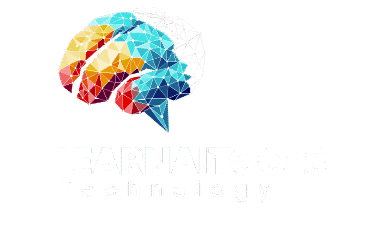
AI Data Ethics 2025 and the Need for Ethical AI
AI Data Ethics 2025 is one of the most important discussions in today’s digital era. Artificial Intelligence is now deeply connected to healthcare, education, finance, marketing, and even personal decision-making. But with this rapid growth, concerns about privacy, fairness, and accountability are also increasing. AI Data Ethics 2025 ensures that innovation happens responsibly, protecting human rights while promoting technological advancement.
Why AI Data Ethics 2025 Matters Today
AI Data Ethics 2025 highlights the reality that AI is only as good as the data it is trained on. If the data contains bias or errors, AI outcomes can become unfair or even harmful. For example, biased recruitment tools may reject candidates unfairly, or medical AI could misdiagnose due to incomplete datasets. By focusing on ethical frameworks, we can ensure AI builds inclusivity, fairness, and trust instead of creating inequality.
Key Principles of AI Data Ethics 2025
- Transparency – AI systems must clearly explain how they use and process data.
- Fairness – Algorithms should treat people equally, avoiding discrimination.
- Privacy – Protecting user data is essential for building trust.
- Accountability – Companies must take responsibility for AI-driven outcomes.
- Sustainability – AI development should align with long-term societal well-being.
These five principles form the backbone of AI Data Ethics 2025, guiding organizations and governments across the globe.

AI Data Ethics 2025 in Healthcare
Data Ethics 2025 plays a crucial role in the medical field. Hospitals and clinics are increasingly using AI for diagnosis, patient care, and drug discovery. Since healthcare involves sensitive patient records, ethical practices ensure that privacy is not compromised. When patients know their data is safe, trust in AI-driven healthcare grows, leading to better adoption and outcomes.
AI Data Ethics 2025 in Finance
Data Ethics 2025 is equally important in the financial sector. AI systems now analyze loan applications, detect fraud, and recommend investments. If these systems use biased or incomplete data, people may be unfairly denied access to loans or credit. Ethical compliance ensures fairness, prevents misuse, and helps financial organizations build long-lasting customer trust.
AI Data Ethics 2025 in Education
AI Data Ethics 2025 also impacts the education industry. AI-powered learning apps and online platforms track student performance, personalize lessons, and improve teaching. But without ethical boundaries, student data could be misused. Ethical standards ensure that personal details are used only to improve learning and not for unnecessary commercialization.
AI Data Ethics 2025 in Business and Marketing
Data Ethics 2025 is reshaping how businesses use data. Companies today rely on AI to analyze consumer behavior and run targeted advertising campaigns. However, when done without ethics, this can lead to manipulation or exploitation. By following data ethics principles, businesses can build stronger relationships with customers based on trust and transparency.
Challenges in Implementing AI Data Ethics 2025
While AI Data Ethics 2025 offers strong guidelines, there are challenges in real-world implementation:
- Lack of global standards – Every country has its own policies, creating inconsistencies.
- Hidden biases – Even large datasets may unknowingly carry discrimination.
- Complexity of AI models – Many algorithms are like “black boxes,” making them hard to explain.
- Balancing rules with innovation – Too many restrictions may slow down AI innovation, while fewer rules increase risks.
These hurdles highlight why constant discussion, monitoring, and updates to policies are necessary.
AI Data Ethics 2025 and Global Regulations
Data Ethics 2025 is inspiring governments around the world to create stricter AI rules. The European Union’s AI Act demands transparency and fairness in all AI applications. Similarly, countries like the USA, India, and Japan are developing frameworks to ensure AI tools respect privacy, fairness, and safety. These regulations help prevent misuse and standardize ethical AI practices.
The Role of Organizations in AI Data Ethics 2025
AI Data Ethics 2025 is not only about government rules—it is also about corporate responsibility. Companies need to:
- Build internal AI ethics boards.
- Conduct regular audits of AI systems.
- Train employees in ethical AI practices.
- Maintain clear communication with users about data policies.
Organizations that embed ethics into their culture will gain customer trust and stand ahead in the competitive AI-driven market.
Future Outlook of AI Data Ethics 2025
AI Data Ethics 2025 is not the final step but the beginning of a new era in responsible AI. In the coming years, we can expect:
- Development of global ethical standards.
- Rise of AI auditing and certification programs.
- More explainable and transparent AI models.
- Stronger collaboration between governments, companies, and researchers.
The future of AI will not only depend on how powerful systems become but also on how responsibly they are developed and deployed.
Conclusion
AI Data Ethics 2025 is much more than a trend—it is a necessity for the future of technology. From healthcare and finance to education and business, ethical AI ensures fairness, privacy, and transparency. Companies and governments that embrace AI Data Ethics 2025 will not only prevent risks but also build global trust, foster inclusivity, and promote sustainable growth.
By focusing on responsible AI practices, the world can move towards a future where artificial intelligence benefits all of humanity without compromising ethical values. To explore more insights, tools, and guides on AI, visit Learn Ai Tools.




